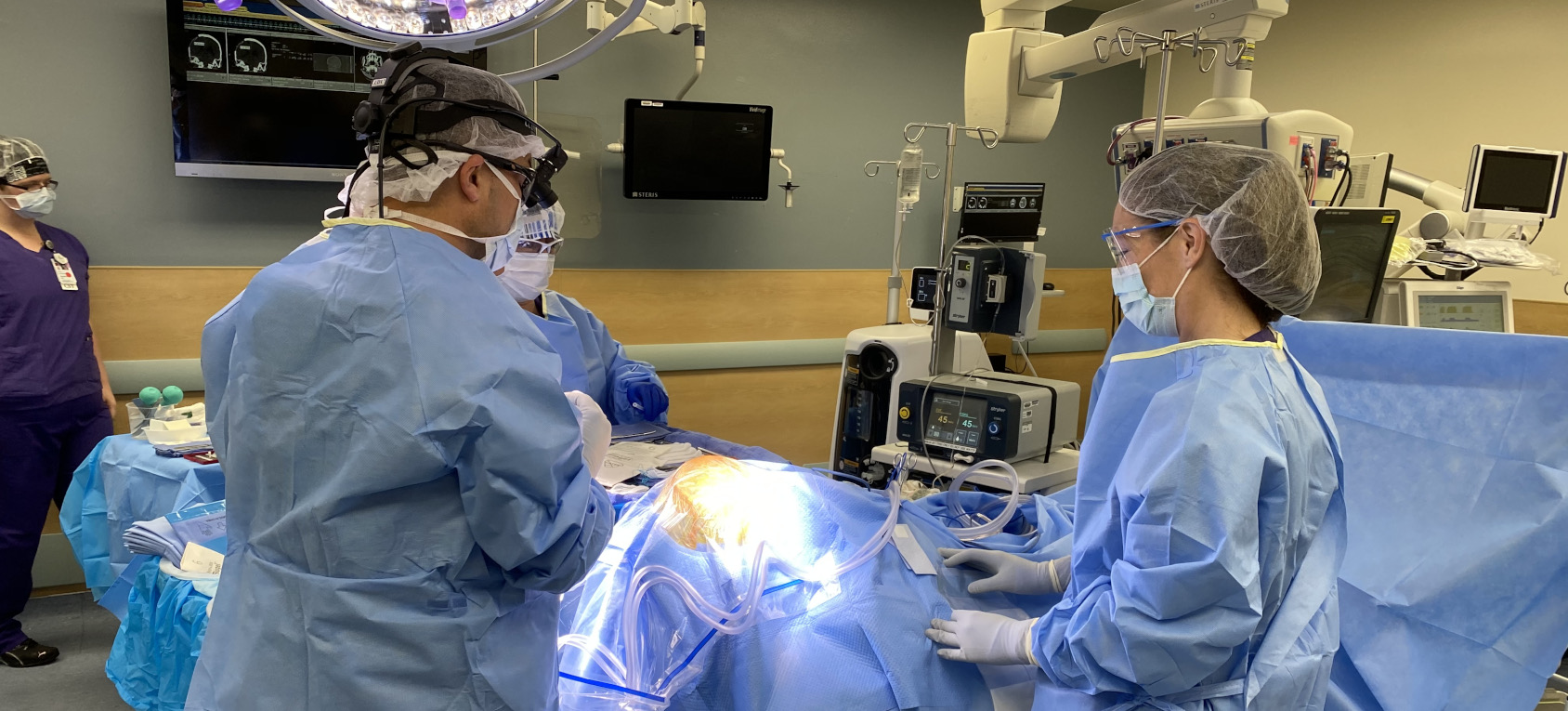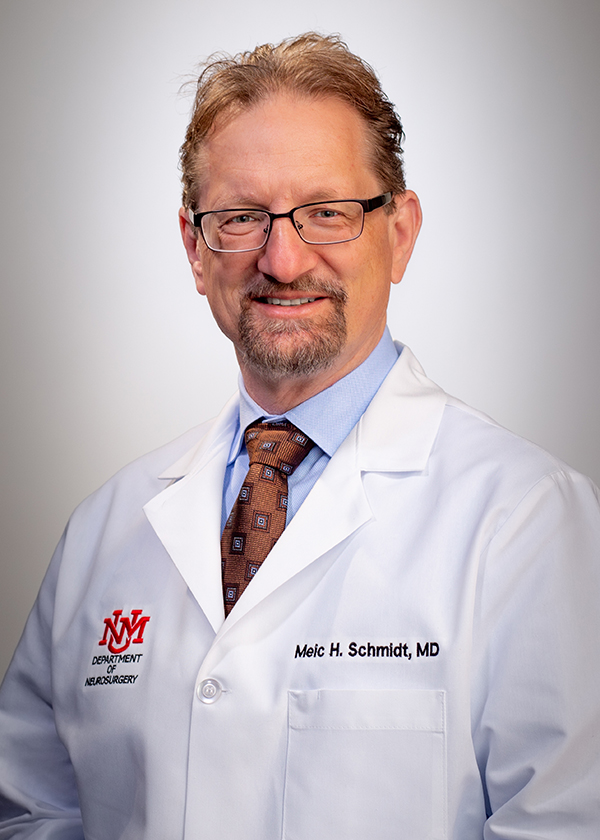Preparing for Disaster: UNM Hospital Participates in Region-Wide Emergency Training

Advancing Care
UNM Department of Neurosurgery Set to Seek Reinstatement of Residency Program
“I love my job,” says Meic Schmidt, MD, “I think being a neurosurgeon, and particular an academic neurosurgeon, is the best thing in the world.”
Schmidt isn’t shy about his skills in the operating room or what he has been able to accomplish in a very short time as The University of New Mexico’s chair of Neurosurgery.
And he shouldn’t be. In two years he has doubled the faculty of his department, forged new clinical partnerships and created sub-specialties that have increased case volumes and led to more patients having access to the cutting-edge care they need, right here in New Mexico.
“It’s definitely a big disaster,” Schmidt says, his German accent accentuating his description of the Accreditation Council for Graduate Medical Education (ACGME) report that led to the closure of the residency program in 2019.
The program was facing an uphill climb after residents reported not participating in enough elective procedures, a lack of faculty and mentoring and a shortage of operating rooms and equipment. Schmidt saw the challenges as an opportunity and he took it, moving from New York to take the reins.
“I think when I showed up here, they had five faculty left,” he says. “That’s really small for a modern neurosurgery program. Also, there was no sub-specialization. Every neurosurgeon did everything and that’s also not typically done these days.
“We have now 10 neurosurgeons, so we doubled the number of neurosurgeons in the program, and we have all the sub-specialties represented – our elective volume is now up by 60%.”
Schmidt also has created a pediatric neurosurgery sub-specialty and hired two faculty in this area, worked with leadership to bring in advanced practice providers to help run the clinics and day-to-day operations and created new clinical partnerships.
“We have this collaboration with Lovelace Hospital, which has given us capacity to do an outpatient surgery or surgery at another facility,” he says. “That has really given us the extra beds that we need.”
Now Schmidt faces the next big test. Next month the program will undergo a virtual site visit by an ACGME evaluator to determine if it is ready to welcome back residents.
“Even if I get the residency, I will have one person,” he says. “It’s a seven-year deal, so it will take us seven years to fill all the spots.”
Joanna Fair, MD, PhD, has also been engaged in the Neurosurgery program’s reaccreditation as the designated institutional officer. It’s her job to work with the 66 residency and fellowship programs throughout the UNM School of Medicine.
“This has been a really rapid process,” Fair says of the work Neurosurgery has accomplished over the past two years. “Helping with and reviewing their application, I feel really good about the chances of being re-accredited.”
Fair credits the program’s complete overhaul, clinical partnerships and boosted faculty and advanced practice provider numbers for helping create the foundation to build a new residency program.
Fair and Schmidt are both are cautiously optimistic. Schmidt says restarting the residency program is really the result to the amazing faculty and staff who support the program and are dedicated to the three-prong approach of education, research and clinical treatment. “I believe hiring good people makes a huge difference,” he says.
A world-renowned spine surgeon, his passion for the program, and medicine in general, is centered on patients. He sees patients from all over the country who come to UNM for treatment.
“We really offer the best care in the state and one of the best providers in the Southwest. We have sub-specialists who can do any case, no matter how large or small, or no matter how complicated.”

We can make a really big difference in people’s lives. We can make patients walk again, that’s a really cool thing.
It’s a passion Schmidt wants to pass on to learners: “We can make a really big difference in people’s lives. We can make patients walk again, that’s a really cool thing. You do this together with research and teaching, and it’s the best thing in the world.”
The program should know by April 2022 if it will welcome its first resident back in the summer of 2022. They are also looking forward to the opening of the UNM New Hospital Tower, which will have dedicated operating rooms and new technology to continue to advance clinical care.